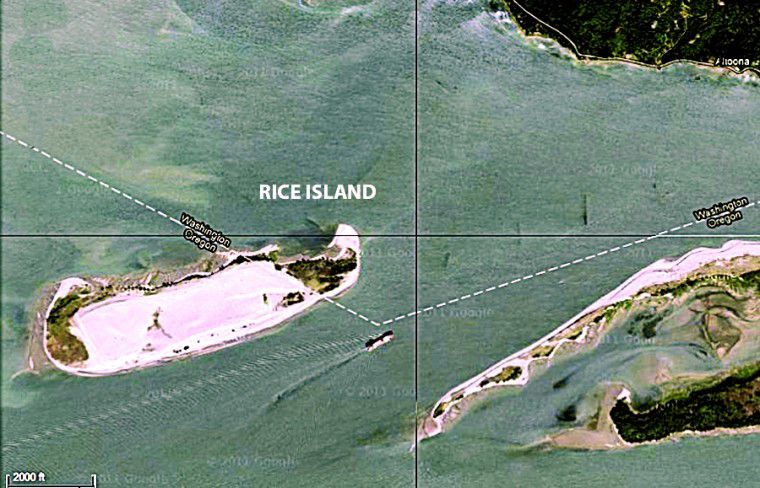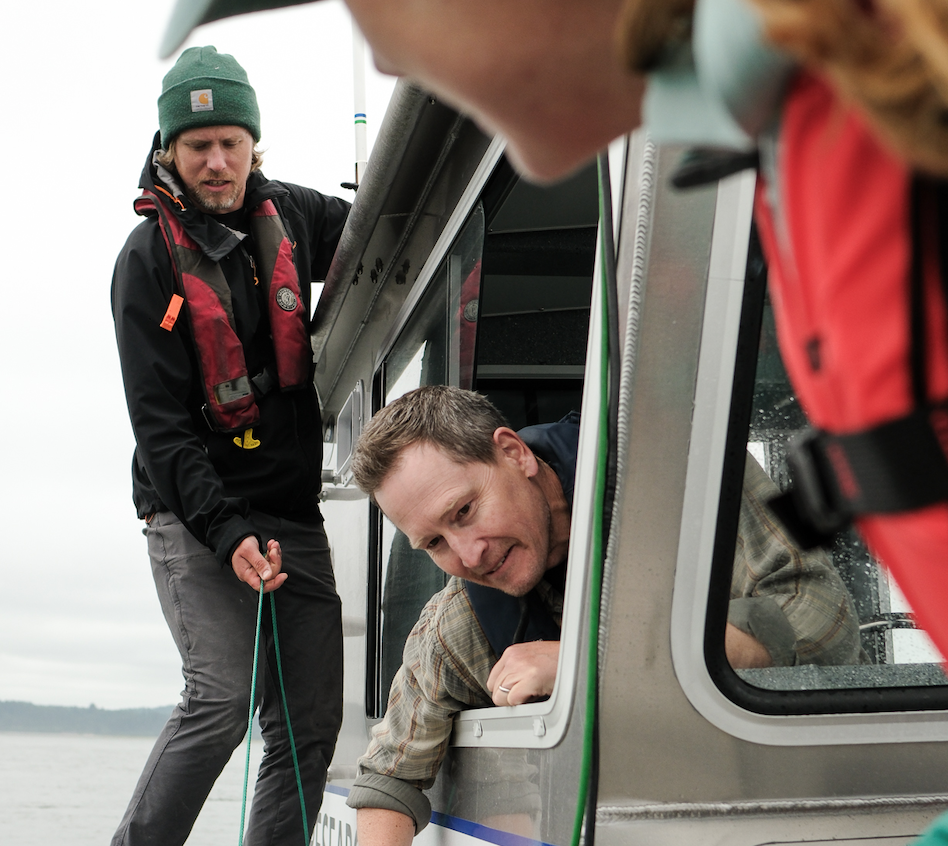Iron ore idea opens up debate about who owns Rice Island
Published 5:00 pm Monday, July 25, 2011

- <p>Rice Island, which is much closer to Washington’s shore than to Oregon’s, is being eyed as a possible source of iron ore and construction sand. The western Wahkiakum County village of Altoona is near the upper right corner in the satellite photo above.</p>
RICE ISLAND Representatives from a company called Eco Mineral & Steel Corp., set a glass jar filled with iron ore atop a podium facing the Port of Astoria commissioners last Tuesday night and pitched a plan to market Columbia River sands.
Part of their plan involves Rice Island a possible stew pot of controversy, with a history that includes dredge spoils, a business started by a dismissed former Port of Astoria director and debated land ownership.
According to CEO Robert Trumbull, who was present Tuesday with his son and partner, Jonathan, Port Director Jack Crider helped arrange a meeting to begin negotiations on an iron ore contract with Seung Ho Park of KOAM International and Young Kil Kim of Seungjeon Scrap Co., Ltd. International.
Park and Kim were visiting from South Korea as a part of Astorias sister port agreement with the Busan Port Authority. The authority has expressed interest in a variety of projects at the Port of Astoria one of the most recent being the possible export of iron ore and steel, according to Crider.
Sand in the Columbia River is known to contain iron ore, Crider said.
The international community knows the challenges of sand in the Columbia River and the value of it, he added.
One of the challenges is separating the iron ore from the sand and mud something Eco Mineral claims to specialize in.
Eco Mineral is asking the Port of Astoria to do two things: withdraw a recent lease application to excavate the man-made Rice Island, and to write a letter recommending Eco Minerals application for a 10-year exclusive license to excavate dredge spoils.
Rice Island, located across the shipping channel from Astoria, is created land, a dredge disposal site. It is loaded to capacity with dredge material removed from the Columbia River by the U.S. Army Corps of Engineers, Crider said.
The port would like to have sand cleared to provide space for more dredge spoils, but it cant do that sort of work without a lease. Eco Mineral, meanwhile, would like the sand and South Korea would like any iron ore that could be extracted from the sand.
But to Crider and Port Commissioner Floyd Holcom, this also opens up a whole separate debate: Who actually owns the island?
The Oregon Department of State Lands lays claim to all created land; however, port officials maintain that the port created the land and should be considered the owners of Rice Island.
In 2003, before the departure of former Port of Astoria Executive Director Peter Gearin, the port was part of three government agencies looking into the possibilities of selling sand from the island to construction companies for concrete and to airports as fill for runways.
This venture ultimately went nowhere and the Port of Astoria let go of its portion of the Rice Island lease.
In 2008, as federal authorities conducted a criminal investigation into Gearins role in a 2005 dredging violation, Gearin started a new business: Rice Island Partners LLC. At the time, some suspected Gearin used his role as port director to set up a private business deal and then, when he was no longer director, convinced the Port to give up its lease to Rice Island.
The port commissioners told Trumbull they would prefer to meet with him in executive session at a later date.









